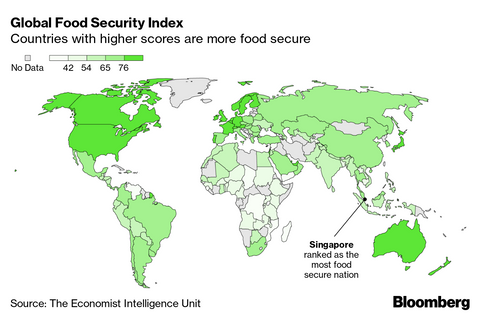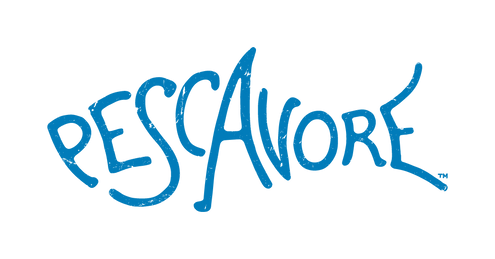From the film director of Vegan and the creators of Cowspiracy: The Sustainability Secret, on Wednesday March 24th Netflix released the highly controversial fiIm Seaspiracy which is now ranked #6 in the U.S. today. In its own words the film is intended to start a “movement to save our seas and uncover the leading cause of marine destruction” – commercial fisheries. Over the course of the one hour and twenty nine minute film, Lucy and Ali Tabrizi of the privately held and UK based Disrupt Design Studios Ltd lead us into the real and current problems in the fishing industry - modern slavery, overfishing, corruption, pollution and greenwashing. However, they go beyond exposing these problems and into a campaign of misinformation bent on insinuating a coordinated global conspiracy (that includes governments, regulators, non-profits, and environmental philanthropies) to rob the oceans of their biodiversity and environmental health. At the end of the disturbing 89 minutes we are led to a single conclusion: “to save the seas, stop eating fish.”
Anti-intellectualism has been defined as, "...a philosophic doctrine that assigns reason or intellect a subordinate place in the scheme of things and questions or denies the ability of the intellect to comprehend the true nature of things ... Anything that celebrates feeling over thought, intuition over logic, action over contemplation, results over means, experience over tradition and order tends toward anti-intellectualism." (Holman, C.Hugh (1985). A Handbook to Literature (Hardcover)(4th ed.) The key attributes of anti-intellectual thinking are distrust of intellectuals (as in Ali Tabrizi's distrust of Oceana, the Marine Stewardship Council, and Earth Island institute), polarizing viewpoints (like, veganism is the only diet that is good for the planet) and totalitarian means to insinuate thought control - like sensationalist "facts" and one sided interviews with cherry picked content that manipulate real conversations to provide an appearance of credibility. The key enablers of anti-intellectualism are an undereducated society (in a broad sense or limited to certain topics, like fisheries) and corporate mass media (like Netflix).
It has been stated that where Seaspiracy fails on truth, fairness, and intellectualism, it wins in initiating dialogues that could have meaningful outcomes for our oceans. In the context of the recently turbulent history in the West, I believe that how we start a constructive dialogue, and how we seek to “educate” the public, matters more than ever. We have all witnessed the corrosive and geopolitically destabilizing effects of extremism, fanaticism and “big tent conspiracy theories”. Irrationally held beliefs sometimes don’t stop in people’s minds and can lead to materially harmful outcomes to society (the attack on the US Capitol building, QAnon, the Anti Vax movement). How we initiate discussions and search for truth matters, and Seaspiracy/Netflix is a deeply irresponsible accounting of and search for truth, and realistic solutions to the problems in our oceans.
In the interest of total transparency and balanced viewpoints, it is important to note that I have spoken with or attempted to speak with both "sides". In engaging Director Kip Andersen to better understand his perspectives on fisheries and conservation, I was disappointed to hear him summarize his viewpoints to "fish are friends". An oversimplification by even the most rudimentary understanding of marine issues. I had a similar experience of Paul Watson, the Captain of Sea Shephard and a collaborator on this film, when we were both speakers at the EarthX conference when I attempted to privately engage him. My goal was to understand his perspective on food security for the roughly 3 billion people globally (many of whom are poor) that depend on seafood as their primary form of protein. Paul declined to discuss this and resorted to criticizing my diet and spearfishing. Such behavior exposes the dogmatism and culture of irresponsibility that comes with surrounding oneself in echo chambers of homogenous, and privileged white narratives.
Notwithstanding, when the documentary was announced, I was hopeful that journalistic instincts would take over and that a fair and accurate view of the issues would be portrayed over "our way or no way" tactics. What we have instead witnessed is divisive and toxic vegan propaganda that fails to consider any differing viewpoint. In the days since the release we are also quickly learning of twisted interviews, ambush tactics, comments taken out of context and key reliance on outdated and discredited "facts". A 2006 paper which predicted 'collapsed' stocks by 2048 (
source) was refuted by dozens of follow up papers, and the original authors have recanted. The prediction is actually a minor point in the paper, it was the press release that accompanied its publication that focused on the inaccurate and apocalyptic sentiment. The easy-to-remember year has helped the story live on in the mainstream media.
To clear up any confusion: the Food and Agriculture Organization of the UN (FAO) estimates that 66% of fisheries are sustainable contributing 78.7% of consumed seafood. The 2048 projection which was published nearly 15 years ago, is not scientifically accepted and should stop being cited (
source). For a reference on other problems with science, refer to the paper by Daniel Pauly, a pre-eminent Marine Biologist and critic of industrial fisheries who believes the film does more harm than good (
source)
On the other "side" I have spoken to or collaborated with a variety of non-profits and non Governmental organizations like OceanWise, FishWise, Seafood Watch and the Marine Stewardship Council. I approached these organizations as a stranger and found them to have open door policies and a willingness to answer the difficult questions while also inviting me directly into the regions of the world that are most productive providers of seafood (
link) which have been inaccurately portrayed in
Seaspiracy.
Unfortunately, there is little that we can do to slow down this harmful media, but there is plenty that we can do to help educate and bring light to a balanced narrative. Through a series of blogs and video content in collaboration with Pescavore Seafood, my hope is to do just that working collaboratively within the environmental community to address the marine conservation issues that were brought forward in the film and what role and responsibilities consumers have in ensuring ocean health. I am also focused on the messengers of the call to action “don’t eat fish” shining a bright light on who financed this production and who might benefit or be harmed by this overly simplified “solution”.
What’s on the line?
-
Humans, who are part of the planetary network, and who rely on seafood for critical nutrients at every stage of life.
-
Three billion people in the world (many of whom are poor) who depend on fish as their primary source of nutrient dense protein.
-
Access to healthy food for every one of the 9.1 billion humans that are projected to live in the world in the year 2050 (a 34% higher population than today)
-
Our ability to increase the volume of marine resourced sustainable seafood to help bridge the 70 percent more food that will be needed for this future population (source).
-
Security of jobs for the roughly 260 million marine fisheries jobs worldwide (source).

It is my belief that a sustainable ocean economy, where protection, production and prosperity go hand in hand can create a healthy ocean and healthy communities that can effectively respond to these global challenges. Despite Seaspiracy’s assertions, there are “industrial” methods of fishing that have little ecosystem impacts and sustainably supply much of the needed demand. We have seen meaningful gains in the supply of sustainable over conventional seafood in relatively short periods of time. This work has been accomplished through collaborative efforts between activists, non-profits, industry, regulators, philanthropists, and intergovernmental cooperation. It is true that we have some distance to go. However, Seaspiracy gives no credit to the work that has been done and the real potential for even better outcomes moving forward. Afterall, it is so much easier to invent conspiracies, holler into echo chambers and finance one sided sensationalist media and call it a “documentary” than to actually get down to the business of the hard work associated with improving our oceans. Such work involves balancing ecological and human needs.
In closing, “Don’t eat fish” is an oversimplification predicated on ignorance, naivete and/or a willful attempt to mislead with potentially perverse incentives. To move forward responsible education, we are looking forward to bringing you the next installment: Is there such a thing as sustainable seafood?
Valentine Thomas is a trained lawyer, environmental activist, entrepreneur, speaker, author, spearfisher, chef, sustainable seafood advocate and Forbes Changemaker.


Thank you for this post. Unlike the documentary, the information shared here certainly explores the complex intricacies of the marine world and seafood consumption better. To stop eating fish is certainly not the primary solution or the primary answer to our oceans struggles. Unfortunately, mass media and the polarisation of ideas has the power to dilute meaningful progress for sustainability or simply, the education thereof.